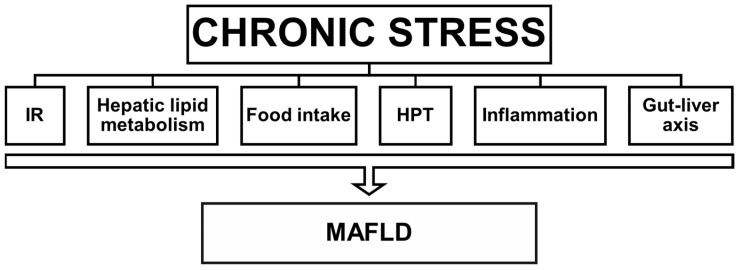Figure 1.
Major potential multiple roles of psychosocial chronic stress in MAFLD. Chronic activation of the stress response leads to high GC levels that exert multiple effects related to MAFLD development. GCs induce insulin resistance (IR) and affect hepatic lipid metabolism by increasing fat delivery from the adipose tissue to the liver, where de novo lipogenesis is stimulated whilst fat utilization and secretion are diminished. Chronic stress stimulates the intake of energy-dense food and decreases the functionality of the HPT axis, thus decreasing metabolic rate and energy expenditure. By means of different mechanisms that include GC resistance, chronic stress enhances inflammation, which is also related to induced gut dysbiosis and leaky gut (gut–liver axis).

